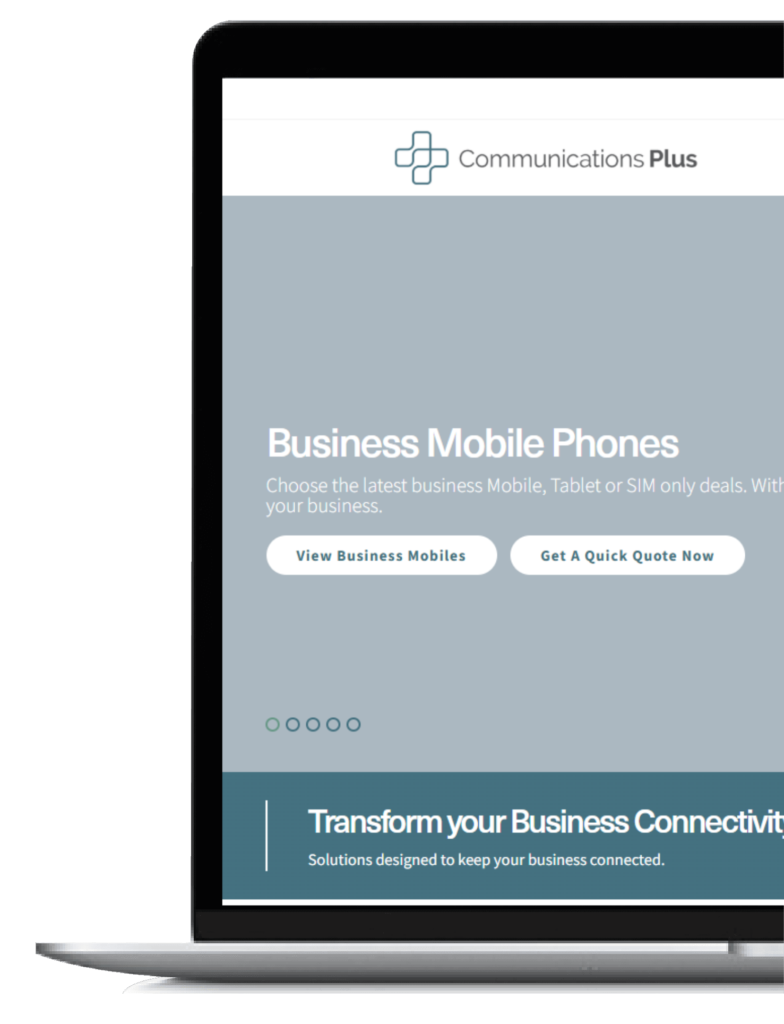A voice over internet protocol (VoIP) telephone system moves a business’ phone system away from rigid, fixed landlines and puts it onto the cloud and a more flexible, scalable platform.
By moving the phone system to a digital platform, it improves efficiency, call quality and helps reduce costs, while expanding what the phone system itself can do.
Voice over IP phone systems allow businesses to put voice, messaging and video calling into one platform while maintaining all the functionality of a traditional phone system like call forwarding, call routing, call transfers and call conferencing.
But by combining this with data and video, it completely changes how a business is able to handle incoming calls and enquiries to not only improve their own efficiency and drive down costs, but improve the customer experience.
There are many benefits to using a voice over IP phone system, but which should you focus on when using this digital phone platform for business?
1 – Reduction in costs
One of the biggest considerations for any new system or business platform is how it impacts the costs of a business, or how much revenue it generates.
You can contribute increased revenue to VoIP because of its ability to improve customer satisfaction if used properly, but it’s the cost reduction in hardware and ongoing costs that bring the immediate benefits.
Unlike traditional phone systems that rely on fixed phone lines installed directly into an office, VoIP uses an internet connection and cloud technology to make and receive calls.
From a cost perspective, it means you don’t have to go through the expense of having new, or additional, phone lines installed when you want to add capacity to your system, and you don’t have the ongoing maintenance costs of repairing those lines.
Instead, you simply invest in a reliable business broadband connection and can run your entire phone and communication network over the internet.
VoIP can also save you additional money on other hardware costs as employees can answer the phone using all their portable devices, whether it’s a laptop, smartphone or tablet – so you don’t need to worry about the cost of additional handsets.
2 – You’ll get a better quality of call
VoIP is a digital platform, which removes the performance problems associated with more analogue systems like copper phone lines.
It’s the same principle as using a digital television signal instead of analogue satellites to create a better, more reliable picture.
With VoIP you can benefit from ‘high definition’ voice calls and sounds will be much clearer for both people.
This call quality carries over to the video calling on VoIP telephone systems so you’ll never need to worry about bad connections or static disrupting an important call.
3 – VoIP is more scalable
With a traditional phone system, whenever you want to add capacity or users to your network, it means adding more phone lines and cabling into your premises to accommodate the hardware.
This can be time consuming and costly when you’re waiting for an engineer to physically install the new lines.
With VoIP, because the system uses a digital signal over the internet, you don’t need to worry about installing additional phone lines and hardware, you can simply add users with their existing compatible device – and then just as easily remove them when they no longer need access to the phone system.
4 – Create more flexibility into your phone system
Traditional phone systems are rigid structures that need fixed phone lines, and the hardware can only deal with voice calls.
Today, when customers might want to get in touch in different ways (whether it’s voice, messaging or even video) old fashioned phone systems aren’t compatible.
When using outdated phone lines, to improve the variety of calls, you need to invest in multiple systems to make it work, which is inefficient and costly.
VoIP puts all your voice, messaging and video calling under one platform so you can handle any type of communication without switching between applications, or even devices.
This means you can build a more flexible phone system around your business, without additional hardware or software investment.
5 – Stop your phone system being an anchor to your business
Flexible working has created a huge problem for businesses when it comes to how they manage incoming calls and customer communications.
Traditional phone lines don’t offer any flexibility and require someone to be on the other end of the line when a customer calls.
With fewer employees working from the office, businesses still need to have a single phone number so customers can easily contact them, but they also need employees to be able to answer the line when they’re not in the office.
VoIP phone systems make this possible because any device connected to the platform through the internet is able to answer the call, wherever they are, no matter what device they’re on.
It means an employee working from home would be able to answer an incoming call to the office on a business mobile phone (for example) and even transfer the call to a colleague to pick up on their laptop, provided they were connected to the VoIP system on the internet.
This creates complete flexibility and stops employees being anchored to the office just so they can be around to answer the phone when it rings.
6 – Future proof your business’ communications
The current network and infrastructure the UK uses for voice and data communication (ISDN) is due to be switched off from 2025.
A lot of businesses still rely on this infrastructure, which compromises copper wiring for phone and data transfer, and even some of the existing fibre to cabinet infrastructure relies on ISDN.
When this infrastructure is switched off it could cause huge disruption to any business still relying on it.
VoIP doesn’t use these old connections because it’s powered through fibre cabling and broadband infrastructure built directly into the premises – so by using VoIP for your business’ phone network you won’t have to worry about the impending ISDN switch off.
Improve your business’ phone system with a voice over IP phone system
Modern businesses can’t rely on outdated, rigid infrastructure to meet the needs of the flexible environment they now operate in.
Regardless of the impending ISDN switch off and the role voice over IP phone systems will play in the future of phone and data infrastructure in the UK, VoIP can provide many immediate benefits that can help businesses be more efficient, collaborative and cost effective.
If you want to take advantage of VoIP to improve your business or have more questions about how it could benefit you, get in touch.










